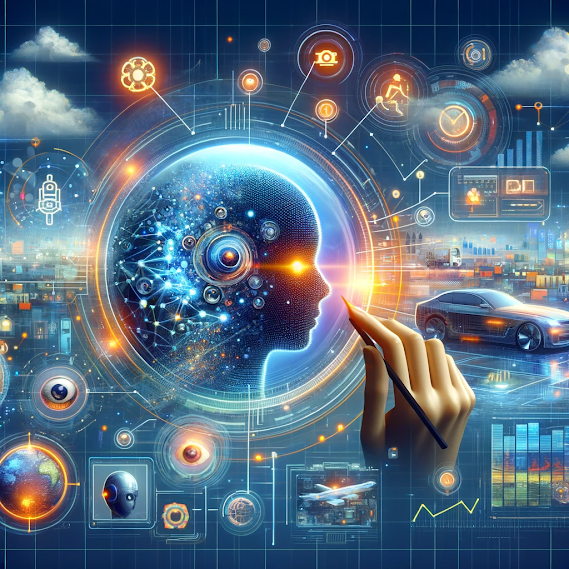Unlocking Efficiency and Innovation: The Transformative Impact of Generative AI in Operations
Unlocking Efficiency and Innovation: The Transformative Impact of Generative AI in Operations
Generative AI is poised to significantly reshape operations across a broad spectrum of industries by automating tasks, enhancing productivity, and spurring innovation. Recent insights from McKinsey suggest that #generativeAI could add between $2.6 trillion and $4.4 trillion annually to the global economy. This value is driven by its potential to automate up to 50% of management and collaboration activities that were previously more challenging to automate (McKinsey & Company).Automation and Efficiency Gains
One of the most compelling applications of #generativeAI in operations is its capacity for automation, where tasks that traditionally took hours can now be completed in seconds. This capability extends from software coding, where generative AI can generate code based on simple instructions, to more complex fields like engineering and manufacturing, where it can synthesize vast amounts of customer requirements to improve product development (McKinsey & Company).
In the pharmaceutical industry, for example, #generativeAI significantly speeds up the drug development process by automating the screening of chemical compounds and optimizing large-molecule designs. This technology enables a more rapid and accurate assessment of drug targets and potential treatments, which can lead to faster and more effective pharmaceutical solutions.
Augmentation of Human Capabilities
Beyond mere automation, generative AI serves as a copilot in various functions, augmenting human capabilities. In procurement, for instance, it can act like a highly knowledgeable assistant that understands and retrieves relevant contract details instantly, significantly reducing the time spent on contract analysis. Similarly, in customer service, generative AI can improve the accuracy and speed of response, enhancing both customer and agent experiences by automating interactions and providing agents with prompt support.
Innovation and New Solutions
Generative AI also plays a crucial role in innovation, helping to create new solutions and ideas that were not possible before. For instance, it can generate entirely new features for products or services, contributing to groundbreaking advancements in various fields.
Challenges and Considerations
Despite these benefits, the deployment of #generativeAI comes with challenges. There is a need for substantial upskilling and training in fields like prompt engineering and data handling to fully leverage this technology. The introduction of #generativeAI requires a robust understanding of its capabilities and limitations to effectively integrate it into existing systems.
Moreover, companies must navigate the potential risks associated with #AI, including biases in the model outputs and the ethical implications of AI-generated content. As such, a structured approach to integrating generative AI — focusing on both technological and human factors — is crucial for realizing its potential in enhancing productivity and driving innovation.
While #generativeAI presents significant opportunities for operational transformation across industries, its successful integration depends on careful planning, continuous learning, and adaptation to mitigate risks while maximizing its vast potential for value creation.

.jpeg)


Comments
Post a Comment